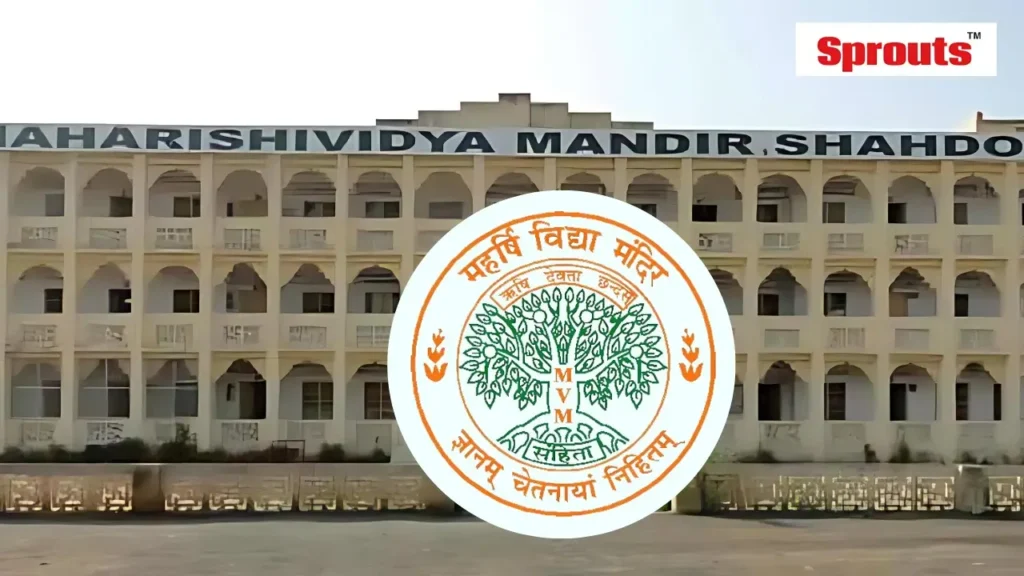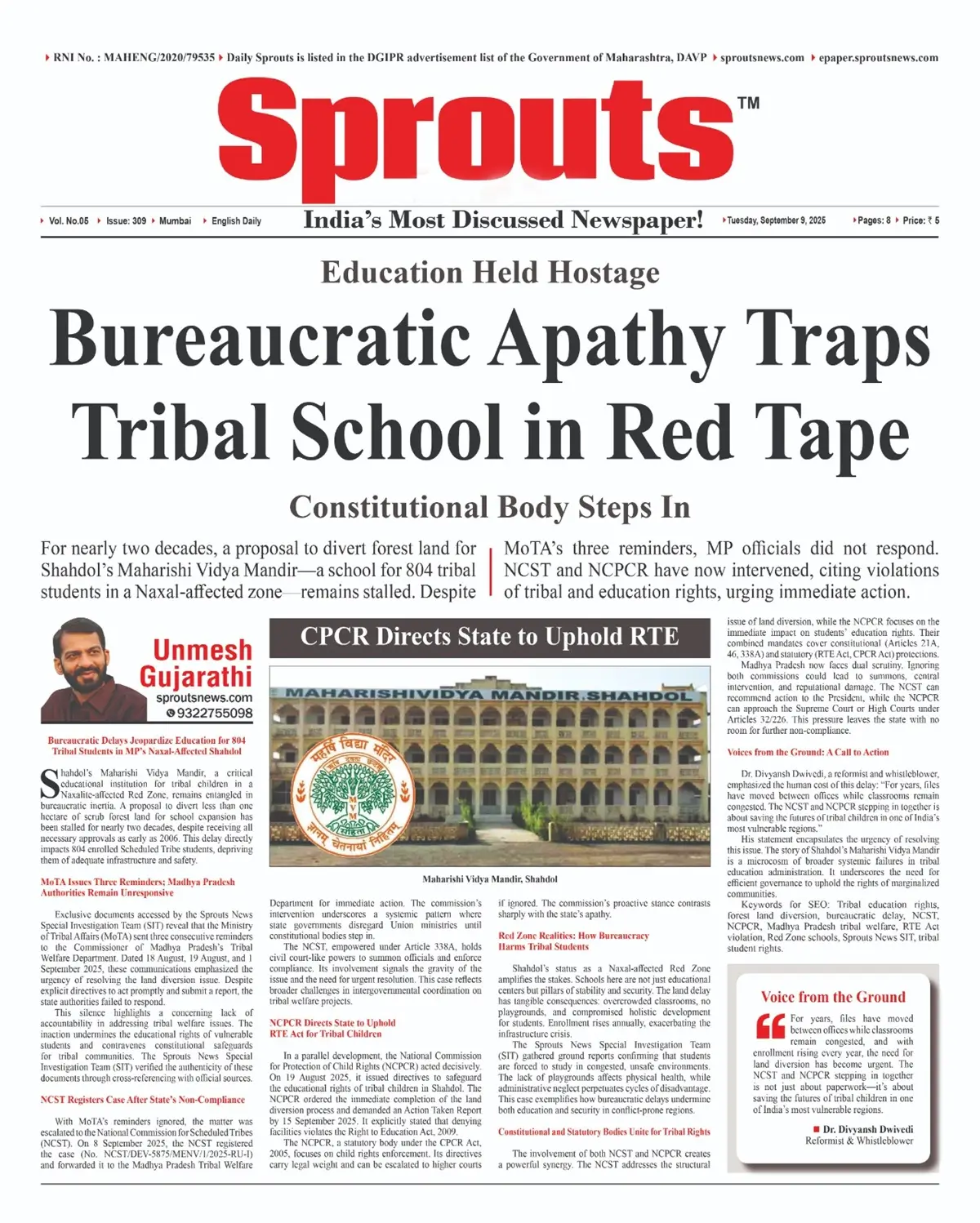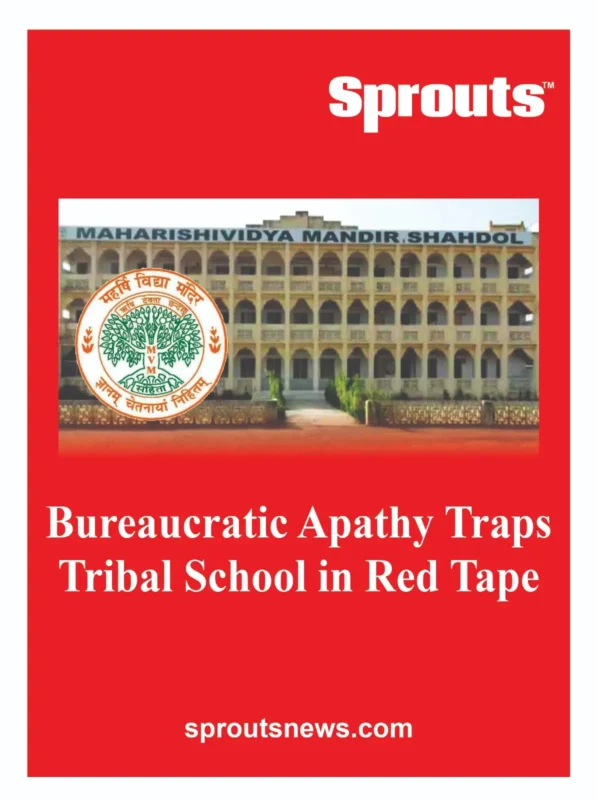Bureaucratic Apathy Traps Tribal School in Red Tape for Two Decades
• Education Held Hostage
• Constitutional Body Steps In
• NCPCR Directs State to Uphold RTE
Unmesh Gujarathi
Sprouts News Exclusive
Contact: +91 9322755098
- Bureaucratic Apathy Traps Tribal School in Red Tape for Two Decades
- Bureaucratic Delays Jeopardize Education for 804 Tribal Students in MP’s Naxal-Affected Shahdol
- MoTA Issues Three Reminders; Madhya Pradesh Authorities Remain Unresponsive
- NCST Registers Case After State’s Non-Compliance
- NCPCR Directs State to Uphold RTE Act for Tribal Children
- Red Zone Realities: How Bureaucracy Harms Tribal Students
- Constitutional and Statutory Bodies Unite for Tribal Rights
- Voices from the Ground: A Call to Action
For nearly two decades, a proposal to divert forest land for Shahdol’s Maharishi Vidya Mandir—a school for 804 tribal students in a Naxal-affected zone—remains stalled. Despite MoTA’s three reminders, MP officials did not respond. NCST and NCPCR have now intervened, citing violations of tribal and education rights, urging immediate action.
Bureaucratic Delays Jeopardize Education for 804 Tribal Students in MP’s Naxal-Affected Shahdol
Shahdol’s Maharishi Vidya Mandir, a critical educational institution for tribal children in a Naxalite-affected Red Zone, remains entangled in bureaucratic inertia. A proposal to divert less than one hectare of scrub forest land for school expansion has been stalled for nearly two decades, despite receiving all necessary approvals as early as 2006. This delay directly impacts 804 enrolled Scheduled Tribe students, depriving them of adequate infrastructure and safety.
Click Here To Download the News Attachment
MoTA Issues Three Reminders; Madhya Pradesh Authorities Remain Unresponsive
Exclusive documents accessed by the Sprouts News Special Investigation Team (SIT) reveal that the Ministry of Tribal Affairs (MoTA) sent three consecutive reminders to the Commissioner of Madhya Pradesh’s Tribal Welfare Department. Dated 18 August, 19 August, and 1 September 2025, these communications emphasized the urgency of resolving the land diversion issue. Despite explicit directives to act promptly and submit a report, the state authorities failed to respond.
This silence highlights a concerning lack of accountability in addressing tribal welfare issues. The inaction undermines the educational rights of vulnerable students and contravenes constitutional safeguards for tribal communities. The Sprouts News Special Investigation Team (SIT) verified the authenticity of these documents through cross-referencing with official sources.
NCST Registers Case After State’s Non-Compliance
With MoTA’s reminders ignored, the matter was escalated to the National Commission for Scheduled Tribes (NCST). On 8 September 2025, the NCST registered the case (No. NCST/DEV-5875/MENV/1/2025-RU-I) and forwarded it to the Madhya Pradesh Tribal Welfare Department for immediate action. The commission’s intervention underscores a systemic pattern where state governments disregard Union ministries until constitutional bodies step in.
The NCST, empowered under Article 338A, holds civil court-like powers to summon officials and enforce compliance. Its involvement signals the gravity of the issue and the need for urgent resolution. This case reflects broader challenges in intergovernmental coordination on tribal welfare projects.
NCPCR Directs State to Uphold RTE Act for Tribal Children
In a parallel development, the National Commission for Protection of Child Rights (NCPCR) acted decisively. On 19 August 2025, it issued directives to safeguard the educational rights of tribal children in Shahdol. The NCPCR ordered the immediate completion of the land diversion process and demanded an Action Taken Report by 15 September 2025. It explicitly stated that denying facilities violates the Right to Education Act, 2009.
The NCPCR, a statutory body under the CPCR Act, 2005, focuses on child rights enforcement. Its directives carry legal weight and can be escalated to higher courts if ignored. The commission’s proactive stance contrasts sharply with the state’s apathy.
Red Zone Realities: How Bureaucracy Harms Tribal Students
Shahdol’s status as a Naxal-affected Red Zone amplifies the stakes. Schools here are not just educational centers but pillars of stability and security. The land delay has tangible consequences: overcrowded classrooms, no playgrounds, and compromised holistic development for students. Enrollment rises annually, exacerbating the infrastructure crisis.
The Sprouts News Special Investigation Team (SIT) gathered ground reports confirming that students are forced to study in congested, unsafe environments. The lack of playgrounds affects physical health, while administrative neglect perpetuates cycles of disadvantage. This case exemplifies how bureaucratic delays undermine both education and security in conflict-prone regions.
Constitutional and Statutory Bodies Unite for Tribal Rights
The involvement of both NCST and NCPCR creates a powerful synergy. The NCST addresses the structural issue of land diversion, while the NCPCR focuses on the immediate impact on students’ education rights. Their combined mandates cover constitutional (Articles 21A, 46, 338A) and statutory (RTE Act, CPCR Act) protections.
Madhya Pradesh now faces dual scrutiny. Ignoring both commissions could lead to summons, central intervention, and reputational damage. The NCST can recommend action to the President, while the NCPCR can approach the Supreme Court or High Courts under Articles 32/226. This pressure leaves the state with no room for further non-compliance.
Also Read: Adani Gagged? Delhi Court’s Interim Ban on Journalists Sparks Debate.
Related Article: Maharishi’s Mahesh Yogi Tribal School in Shahdol Suffers Decade‑Long Expansion Freeze.
Voices from the Ground: A Call to Action
Dr. Divyansh Dwivedi, a reformist and whistleblower, emphasized the human cost of this delay: “For years, files have moved between offices while classrooms remain congested. The NCST and NCPCR stepping in together is about saving the futures of tribal children in one of India’s most vulnerable regions.”
His statement encapsulates the urgency of resolving this issue. The story of Shahdol’s Maharishi Vidya Mandir is a microcosm of broader systemic failures in tribal education administration. It underscores the need for efficient governance to uphold the rights of marginalized communities.
Keywords for SEO: Tribal education rights, forest land diversion, bureaucratic delay, NCST, NCPCR, Madhya Pradesh tribal welfare, RTE Act violation, Red Zone schools, Sprouts News SIT, tribal student rights.
Voice from the Ground
“For years, files have moved between offices while classrooms remain congested, and with enrollment rising every year, the need for land diversion has become urgent. The NCST and NCPCR stepping in together is not just about paperwork—it’s about saving the futures of tribal children in one of India’s most vulnerable regions.”
— Dr. Divyansh Dwivedi, Whistleblower




















Passion becomes profession results in sprouts